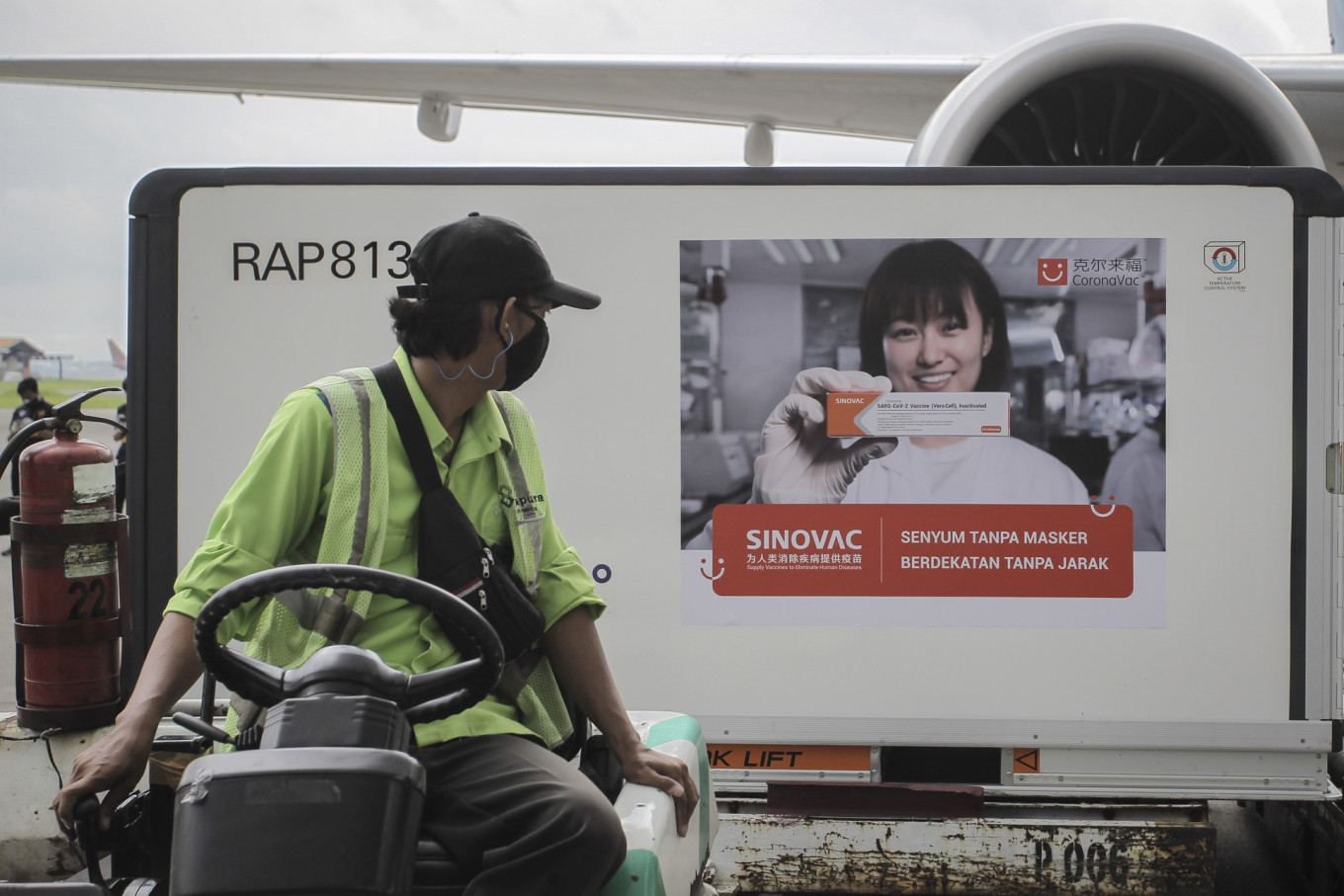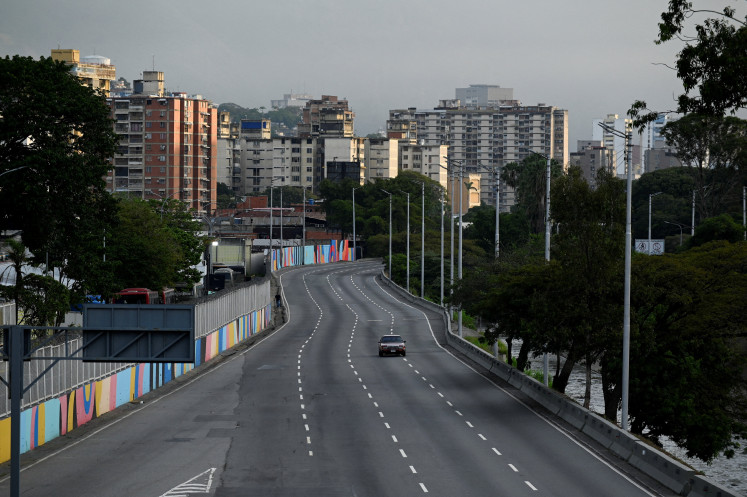Popular Reads
Top Results
Can't find what you're looking for?
View all search resultsPopular Reads
Top Results
Can't find what you're looking for?
View all search resultsBusiness leaders stay cautious amid COVID-19 vaccine rollout
Expectation management is the watchword among business leaders and economists as Indonesia started rolling out its nationwide COVD-19 vaccination program this morning.
Change text size
Gift Premium Articles
to Anyone
B
usiness and economics figures are carefully managing their expectations on economic recovery following the rollout of Indonesia’s COVID-19 vaccination program on Wednesday morning, keeping a watchful eye over the program’s potential challenges and that it would take time until the coronavirus outbreak can be brought under control to allow businesses to resume operating normally.
“The vaccination [program] may give a boost to [consumer] confidence. [...] But the vaccination drive is not a silver bullet and therefore, structural reform to attract investment is crucial to jack up the economy,” Bahana Sekuritas economist Satria Sambijantoro told The Jakarta Post on Tuesday.
Indonesia is likely to see economic growth of up to 5 percent this year, driven by the low-base effect, Satria added.
The country plunged into recession in 2020 for the first time in two decades.
The Food and Drug Monitoring Agency (BPOM) on Monday issued emergency use authorization (EUA) for CoronaVac, which reported an efficacy rate of 65.3 percent in its interim analysis of late-stage trials. Indonesia is the first country outside China to issue the EUA for the COVID-19 vaccine product developed by Chinese pharmaceutial Sinovac Biotech.
On Wednesday morning, President Joko "Jokowi" Widodo because the first person in the country to receive the first dose of CoronaVac. The government’s free vaccination program is to proceed with the inoculation of around 1.3 million frontline health workers in the next few months amid an ongoing surge in COVID-19 infections and deaths.
The Jakarta Composite Index (JCI) jumped 2 percent on Monday as investors warmly welcomed the vaccine rollout. The benchmark index gained a further 0.51 percent by 12:43 p.m. on Wednesday, while the rupiah appreciated 0.34 percent on the same day.
“Indonesia must have great hope in the vaccine, but expectations of how quickly consumer confidence will return need to be carefully managed,” executive director Chris Wren of the British Chamber of Commerce (Britcham) Indonesia told the Post.
He stressed that the nationwide vaccination program was a “major step” in reversing the trend in the overwhelmed health system: “Beginning the vaccination program is something to be celebrated, but the evidence of winning the battle will be when hospital admissions establish a falling trend.”
“Only then the social restrictions can be relaxed,” Wren emphasized, which would in turn help business activities start resuming normalcy toward reviving confidence.
Indonesian consumers have become less pessimistic over the last couple of months, with the Bank Indonesia consumer confidence index (CCI) showing an increase to 96.5 in December from 92 in November, driven by better expectations in job availability and income growth. A CCI value above 100 indicates general optimism, while a CCI value below 100 indicates pessimism.
Indonesia is continuing to record a surge in both COVID-19 infections and deaths, with Tuesday seeing 10,047 new cases and a record high of 302 deaths. This puts the nation’s cumulative figures to more than 846,700 cases and 24,600 deaths.
The dire situation has forced the government to implement tighter restrictions on public mobility from Jan. 11 to 25 to slow the virus’ spread. The measures include cutting operating hours for shopping centers and public transportation and reducing office capacity to 25 percent.
“With a large population, an underfunded healthcare system and low testing per capita, the vaccine rollout might take longer than expected,” Sakshi Sikka, senior analyst for pharmaceuticals and healthcare at Fitch Solutions, said in an email on Tuesday.
“[Indonesia’s] vaccination strategy also involves vaccinating some 186 million adults between 18 and 65 [years old] first, rather than the approximately 18 million [adults] over 65. As such, there is a risk of this strategy backfiring and a further outbreak,” she added.
According to Asia Country Risk head Anwita Basu of Fitch Solutions, Indonesia’s economy was forecast to recover and grow 6.1 percent this year, but the downside risks emerging from the pandemic would materialize mainly in the form of weak domestic demand.
“In terms of the vaccine rollout, we think the process will be slow and labored, and this means that the travel and leisure sectors will continue to face headwinds,” she said.
Meanwhile, Indonesian Chamber of Commerce and Industry (Kadin) deputy chairwoman Shinta Kamdani stressed that the revival of business confidence would depend on how long the restrictive measures were in place.










